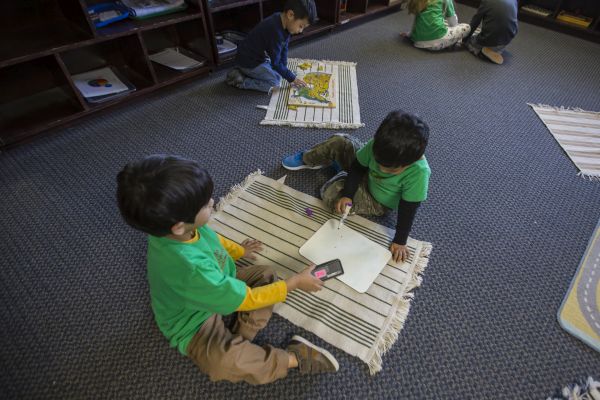
The plain truth is that children are not born knowing how to share. Generosity is something they must learn. As a developmental milestone, true empathy for the feelings of others, a necessary precursor for honest, self-directed sharing, doesn’t really happen until about six years of age. Until that point, children have to be taught to understand and accept the concept of sharing and shown its benefits.
Check out these tips on how to teach kids to share.
Don’t Ask Too Much
Toddlers under the age of two-and-a-half-years will not accept sharing without a struggle. Children of this age are just learning to separate themselves from their parents and create a world that is uniquely their own. This encompasses the space they live in and the toys they play with.
Some of those toys, such as a blanket, doll, or stuffed animal, become such favorites that the child sees the objects as an extension of his or herself. Because forming strong attachments is an important part of development, it’s vital to respect their relationship with such precious things, and not insist they share them with others.
Play Sharing Games
Sharing has many connotations for adults. Young children, however, will perceive “sharing” as a loss, because someone has taken something important away. But if a child has learned the concept of give-and-take, timed use, and taking turns, he’ll be more willing to give up something knowing that it will soon come back.
For toddlers, a simple game of “my turn, your turn” involving passing a toy back and forth helps solidify the concept of a “turn” being a discrete period of time. You can even use a timer for older kids. A preschooler given a plate of cookies could be asked to “share” them with her friends. The act not only gives her a sense of responsibility, but may introduce the idea that offering up something can bring pleasure to others and thus joy to oneself. Plus, she hasn’t lost anything: She still gets a cookie.
Praise Pointedly
To live well in a community, empathy for others is vital. When your child does share successfully, you can help develop his awareness of the feelings of others by pointing them out to him or her. Beyond “Good job!” you may want to add, “Did you see how happy your friend became when you gave him a turn with the ball?”
Be A Role Model
Modeling generosity doesn’t mean giving away the farm. It means explaining small acts of kindness that you enact in everyday life, such as sharing a book with a friend, complying with a frantic neighbor’s request for an egg so she can finish baking a cake, or donating outgrown hockey skates to a local rink’s charitable drive. Sharing goes both ways, so take your preschooler with you next time you’re the one knocking on the neighbor’s door in the hopes of borrowing his hedge clippers.
Every parent has experienced that uncomfortable moment when their toddler or preschooler steals a toy from another child’s grip, or refuses to allow a playmate to touch any of his or her things. Don’t despair. With patience and time, your maturing toddler will soon grow into a kind, generous preschooler.





















